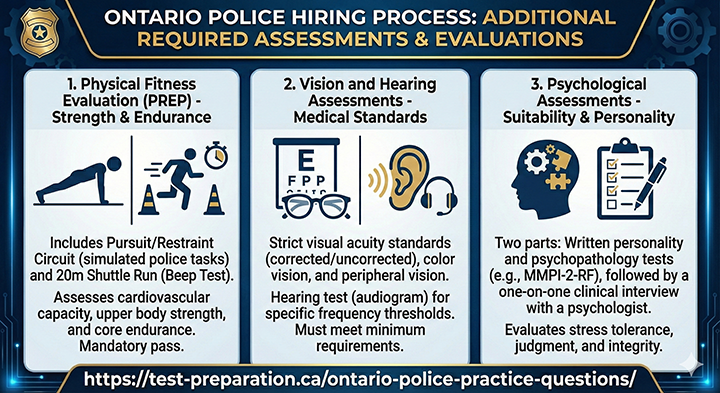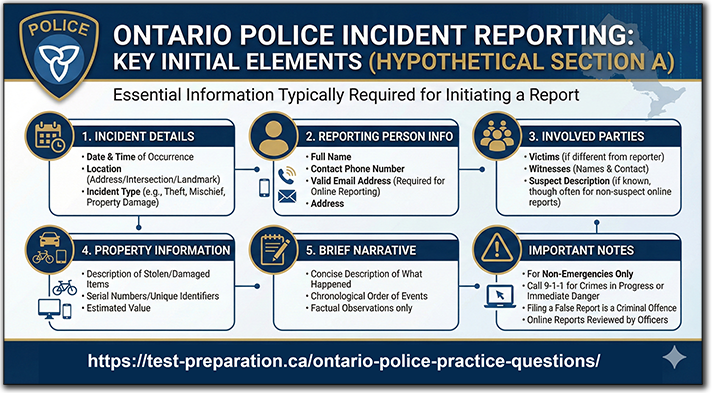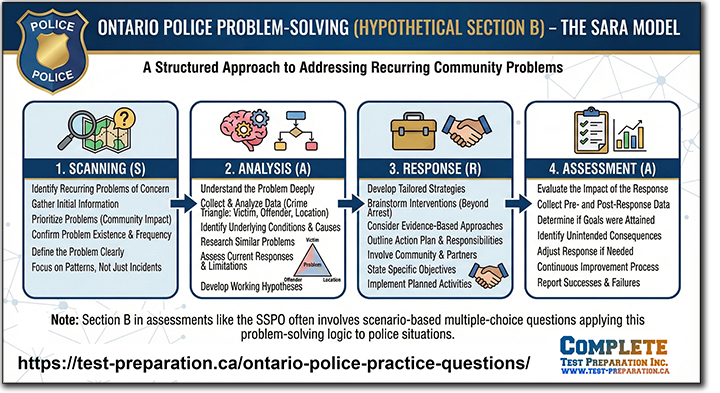Taking the Ontario Police Constable Entrance Test? Sigma Survey for Police Officers (SSPO) Practice Questions
Ontario Provincial Police
The Ontario Police service are a division of the Ministry of the Solicitor General that serves the province of Ontario. It has the responsibility of ensuring all law enforcement activities within the province as well as outside. It is the second largest police service in Canada. Candidates for Provincial Police Constable are competitively recruited based on their abilities.
The OPP, the most extensive provincial police in Canada, is a highly trained and professional force. The OPP is committed to keeping the people of Ontario safe.
The Ontario Provincial Police started in 1867 and is among Canada’s oldest provincial police services. The OPP supports Ontario’s municipal police with criminal investigations, traffic enforcement, and other facilities.
Becoming a Police Officer in Ontario is a competitive process, but the right preparation makes all the difference. To join services like the OPP, Toronto Police, or York Regional Police, you must first earn your OACP Certificate. This requires passing the Sigma Survey for Police Officers (SSPO), which tests your mental ability, reasoning, and communication skills. Don’t waste time studying outdated PATI material. Our OACP Practice Questions and Study Guide are designed for the current exam format, helping you master police problem-solving, grammar, and spelling. Start your preparation today and take the first step toward your badge.
The SSPO is the gatekeeper to your career in law enforcement. Used for the OACP Certificate in Ontario and the Saskatoon Police Service, this test demands speed, accuracy, and specific logic skills.
Here is the Problem – You have 35 minutes to answer 74 questions. That’s less than 30 seconds per question. Most candidates don’t fail because they aren’t smart—they fail because they run out of time.
Here is the Solution – Stop guessing. Our SSPO practice packages teach you the specific grammar rules and problem-solving logic used on the actual exam.

Occupational Outlook
Wages and Salary
Police officers (except commissioned) start at $27.00/hour and go up to $57.95/hour in the Toronto Region. People working as a “community services officer – police” are part of this group.
Toronto region:
- Approximately 9,110 police officers
- Police officers work primarily in the following sectors:
- Local, municipal, regional, aboriginal and other public administration: 83%
- Federal government public administration : 9%
- Provincial and territorial public administration : 7%
The SSPO Test is your Gateway to an in-demand and exciting career!
Complete Study Guide and Practice Questions
What is the SSPO?
Definition: The SSPO (Sigma Survey for Police Officers) is a cognitive ability test designed to measure your ability to write police reports and solve practical problems.
Where it is used:
Ontario (OACP Certificate): The SSPO is the “Part B” General Mental Ability Assessment required for all Ontario applicants (OPP, Toronto, Peel, York, etc.).
Saskatchewan Required for the Saskatoon Police Service.
Format at a Glance:
Total Questions: 74
Time Limit: 35 Minutes (Strict!)
Format: Online, proctored.
Applying to be an Officer with the Ontario Police Service
The application process includes filling the relevant forms under Constable Application.
Are you interested in a career in law enforcement in Ontario? The Ontario police service is looking for dedicated and hard-working people to join their agency.
Before applying to be an officer with the Ontario police services, you should know a few things: what you will need to be eligible to use and the steps you need to take to complete the application process.
candidates are advised to attend the information sessions.
Below are things you should learn about what it takes to become a police officer:
Eligibility Requirements for Ontario Police Application
Before applying, ensure you meet the minimum requirement for becoming a police officer in Ontario.
The following are the required:
- A minimum of 18 years: You must be old enough, at least 18 years.
- A good driving record: To become a police officer, you must have a driver’s license and a maximum of six demerit points; no one can remove six points from your license.
- Good health: Getting in good shape and health is vital for every police officer in Ontario. You should be able to complete physical tests like running 3 miles (kilometres) in a particular time, swimming, and many other physical tests. If you’re not in good health, you should include aerobic exercise as part of your daily routine. You should be able to meet the required level of physical, vision, and hearing standards. Diet is also a significant concern when it comes to good health. Ensure that you sleep well and add fruits and vegetables to your meals.
- Have a high school diploma: A high school diploma proves you have the needed level of education. You should also be able to speak fluent English.
- A Canadian citizen: To meet the requirements for citizenship, either immigrant or a Canadian resident, you must have a permanent status in Canada.
- A valid CPR first aid certification: Being a police officer is a commitment, and you should be ready for anything, especially when it comes to an emergency, so training for CPR and first aid is vital. You can get lessons from the Canadian Red cross.
- No pending criminal record: you must have a clean record, ethics, and morals. Most departments value honesty and integrity. The police services want to ensure that you are worthy of trust for the responsibility and will want to know that you’re honest and fair.
Application and Selection Process
Ontario police Application Process
The process below is for Ontario, and most police agencies in Toronto follow this process.
- Get an Ontario Association of Chiefs of Police (OACP) Certificate
- Complete medical tests for hearing and vision
- Start the fitness assessment and submit an Ontario police online application.
- Pre-screening and written interview
- Finish fitness log obtaining minimum level 7 (see below for details)
- Interviews
- Complete personality inventory
- The background investigation and psychological assessment
- Offered condition of employment
Selected candidates advance to recruitment training at Ontario Police College. Recruits need to complete the training program to become police officers.
Ontario Police Selection Process
The Ontario Provincial Police (OPP) has a wide range of responsibilities in providing policing services across Ontario. As a result, the selection process is to identify the candidates with the necessary skills, attributes, and abilities to conduct the duties of police.
The selection process has several stages: application, written testing, physical testing, background check, and medical examination. The Ontario Police selection process is challenging and rigorous but is excellent for candidates to demonstrate their skills.
The Ontario government wants to hire the best police officers; the selection process is vital to ensure that the selected officers are responsible for keeping the people of Ontario safe.
The Ontario Police Interview
The Ontario police interview is the most crucial part of the process. The interviewer assesses candidate’s interpersonal skills, communication, and ability to think beyond and make wise decisions under pressure.
Police officers and civilians conduct the interview process, which they structure into three parts:
- The opening section: This is the pre-background questionnaire. Once the interviewer accepts your cover letters and resume, you must complete a questionnaire. Essay questions depend on the position you applied for. The candidates must answer questions about their background and experience under pressure.
- A role play section: This is the second important interview section, provided you passed the first section. The panel gives a scenario to the candidate who should respond to it under pressure; they will ask questions to test your understanding of the community and the role you perform. The interviewer asks you to test yourself with more questions to see if you qualify for the next section.
- A closing section: This is the final and the most challenging essential competencies interview section. The panel asks the candidates motivational questions about why they want to join the police force.
Background Check
Ontario Provincial Police conduct a criminal record check as a part of their application process. The assessment is a requirement for the police to review your personal history.
Ontario Police Fitness Test
The Ontario Police Fitness Test is vital to every officer in the Ontario province. The test contains four components: a cardiovascular fitness test, flexibility test, body composition test, and muscular endurance test.
The test assesses the applicant’s ability and must ensure that the police officer is physically fit to perform the assigned duties.
The Ontario Police Psychological Evaluation
The Police use the Ontario Police Psychological Test to evaluate the psychological health of potential candidates. Officers face many challenges, including horrifying crime scenes, violence, abusive language, and more.
This test does not test your mental stability; it is an evaluation of your mental fitness to encounter all the possible scenarios you may face while working in law enforcement.
Vital characteristics for officers are control impulse, judgment, good courage, honesty, integrity, dependability, ability to deal with supervision, appropriate attitudes, and ability to handle stress.
The police psychological test has three sections, depending on the agency. Below are the components:
1. Self-Evaluation
This section is a pre-test that involves your personal history such as education, strengths and weaknesses, as well as background information like drug abuse, and employment records.
2. Series of Questions
Questions determine your psychological strength. Questions are multiple choice, where you express your feeling by marking one answer from the multiple choices to show if you agree, strongly agree, neutral, disagree, or strongly disagree.
The series of questions will often repeat to enable the psychologist to evaluate your honesty, consistency, and integrity, so don’t lie.
3. Eye-to-Eye Conversation with a Psychologist
The psychologist will ask the same questions you have answered in the pre-test for clarification and explanation. They will want to know more about your background, education, your current lifestyle, and previous work experience.
SSPO Section A – Incident Report Writing
This section tests if you have the literacy skills to write reports, which often are used in court. It may look easy, but tricky spelling and grammar traps can ruin your score.
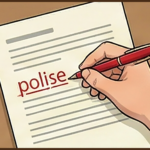
You are given a word (e.g., “Occurance”) and must decide YES or NO if it is spelled correctly. Tip: Watch for double letters!
Spelling Practice Questions

Choose the best synonym for a word used in a police context (e.g., “The suspect was apprehended”).
Police Vocabulary
General Vocabulary Practice Questions
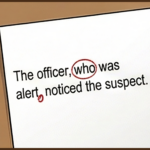
Punctuation Practice Questions
Why Practice Matters You cannot rely on ‘gut feeling’ for grammar. You need to know the rules of comma splices, capitalization, and subject-verb agreement.
SSPO Section B – Police Problem Solving (The “Score Killer”)
This section measures your logical reasoning and judgment. It uses realistic police scenarios and map-based questions.
You are given a rule (e.g., “Officers may only enter a park after dusk if…”) and a scenario. You must decide if the officer’s action was correct.
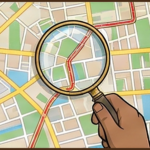
Map Reading Practice
Sentence Logic Practice
Logic Practice II
Logic Tutorial

Police Problem Solving
Police Judgement Practice
Police Situation judgement – In-depth Analysis
Police Situation Judgement Workbook
Test Strategy
These questions are wordy. We teach you how to scan for keywords so you don’t waste precious minutes reading unnecessary details.
This is a multiple choice test – help with multiple choice
For Skill Practice Only
Date Published: Wednesday, June 22nd, 2016
Date Modified: Saturday, January 3rd, 2026
Complete Test Preparation Inc. is not affiliated with the Ontario Police, who do not endorse and are not involved in the production of this product.
Date Published: Wednesday, June 22nd, 2016
Date Modified: Saturday, January 3rd, 2026

